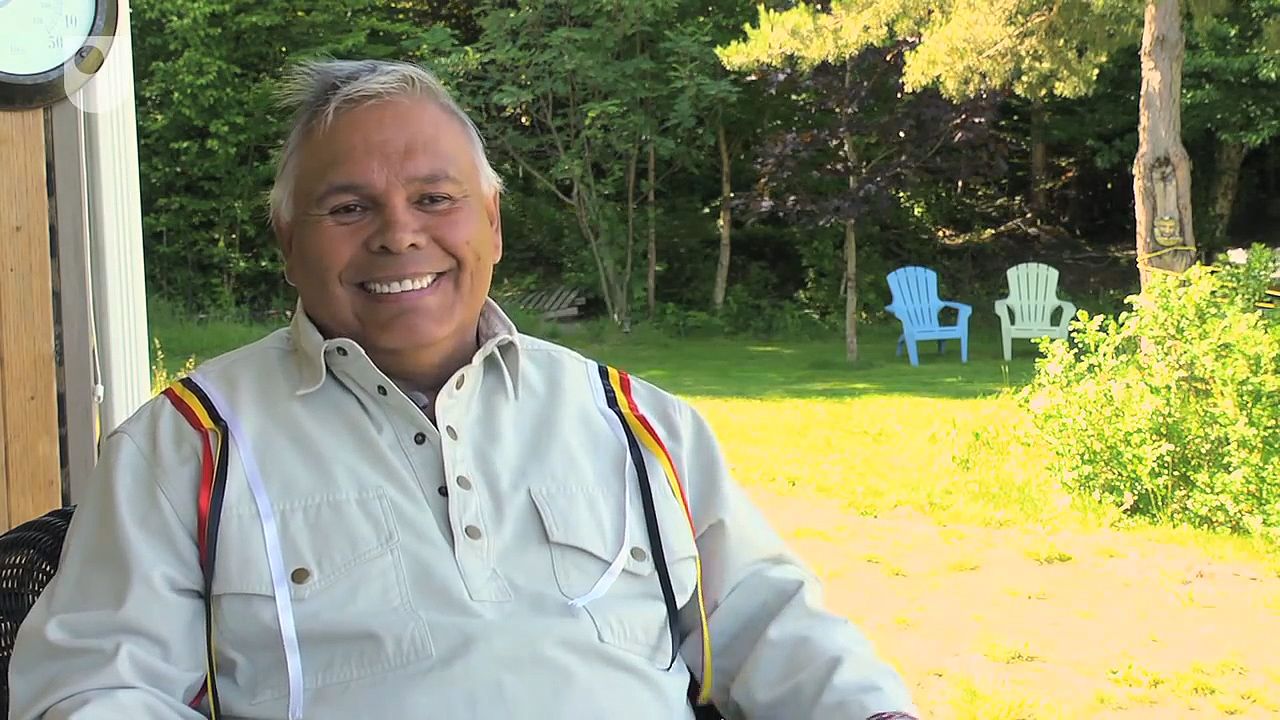Know about the Mi'kmaq people's spirituality and religion

Know about the Mi'kmaq people's spirituality and religion
A look at Mi'kmaq religion and spirituality.
© Open University (A Britannica Publishing Partner)
Transcript
NARRATOR: Although the community traces its roots back to at least the 1700s, many of its members were assimilated, often through marriage into the Catholic church, which became the predominant religion of Mi'kmaq people.
[NON-ENGLISH SINGING]
CHIEF MISEL JOE: The pow-wow is slowly but surely replacing the importance of St. Anne's Day, when St. Anne's Day used to be a social gathering. And St. Anne's Day is just a few weeks away.
INTERVIEWER: Is that why you decided to have it just before St. Anne's Day?
CHIEF: I wouldn't admit that to the Bishop, no. But yes.
NARRATOR: Chief Misel Joe has sought federal funding to allow the community to establish a First Nation identity separate from their Catholicism, though Mi'kmaq spirituality has always been part of their lives.
LOCAL: My father is Roman Catholic, but he respects the environment, I think like a Mi'kmaq person does. We were walking in a nature park. And I noticed the way he'd walk would sometimes be erratic and then he'd walk normal, almost like he was walking over things. And I asked him why he was walking like that.
And he took me back to one of the spots where I noticed a change in his pace. And he looked at me and he pointed down. And he asked if I noticed anything down there. And I told him, no, didn't look any different than anywhere else on the trail.
And he said, down there, there's a shrew down there. It's a little shrew trail. A shrew's like a little mouse, I guess, with a big nose. And they're kind of blind so they kind of run around. And he said, there's a shrew trail there.
It's under the snow. It's like a tunnel. And he said, if I were to walk on that tunnel, he said, then I'd probably ruin that shrew's trail. And he wouldn't know where he was going. And he'd come back from getting his food.
And it's something that no one else would think about. I didn't think about it. But something he knew to avoid doing. And that comes from that First Nations side of him.
I think that being a Mi'kmaq person has shaped his view of the environment. He's Roman Catholic. And I think that he does have some inherent spirituality about him that sets him apart from a Roman Catholic from St. Albans, someone who is not a Mi'kmaq. Even though he missed it, even though he wasn't exposed to it in person, there's still something deeper that shapes him.
[NON-ENGLISH SINGING]
CHIEF MISEL JOE: The pow-wow is slowly but surely replacing the importance of St. Anne's Day, when St. Anne's Day used to be a social gathering. And St. Anne's Day is just a few weeks away.
INTERVIEWER: Is that why you decided to have it just before St. Anne's Day?
CHIEF: I wouldn't admit that to the Bishop, no. But yes.
NARRATOR: Chief Misel Joe has sought federal funding to allow the community to establish a First Nation identity separate from their Catholicism, though Mi'kmaq spirituality has always been part of their lives.
LOCAL: My father is Roman Catholic, but he respects the environment, I think like a Mi'kmaq person does. We were walking in a nature park. And I noticed the way he'd walk would sometimes be erratic and then he'd walk normal, almost like he was walking over things. And I asked him why he was walking like that.
And he took me back to one of the spots where I noticed a change in his pace. And he looked at me and he pointed down. And he asked if I noticed anything down there. And I told him, no, didn't look any different than anywhere else on the trail.
And he said, down there, there's a shrew down there. It's a little shrew trail. A shrew's like a little mouse, I guess, with a big nose. And they're kind of blind so they kind of run around. And he said, there's a shrew trail there.
It's under the snow. It's like a tunnel. And he said, if I were to walk on that tunnel, he said, then I'd probably ruin that shrew's trail. And he wouldn't know where he was going. And he'd come back from getting his food.
And it's something that no one else would think about. I didn't think about it. But something he knew to avoid doing. And that comes from that First Nations side of him.
I think that being a Mi'kmaq person has shaped his view of the environment. He's Roman Catholic. And I think that he does have some inherent spirituality about him that sets him apart from a Roman Catholic from St. Albans, someone who is not a Mi'kmaq. Even though he missed it, even though he wasn't exposed to it in person, there's still something deeper that shapes him.

